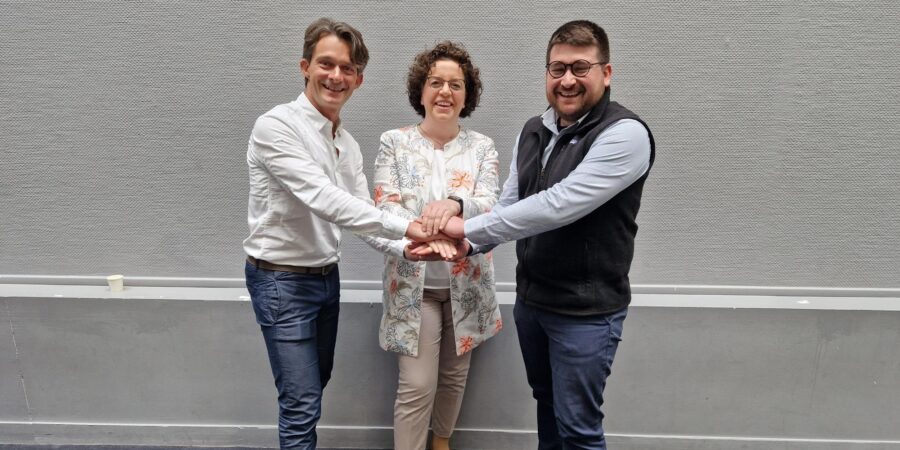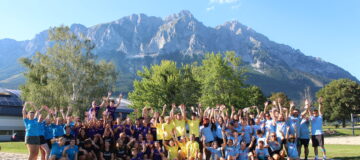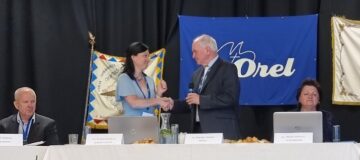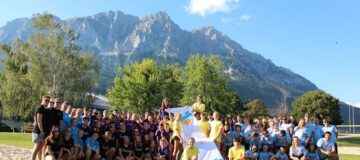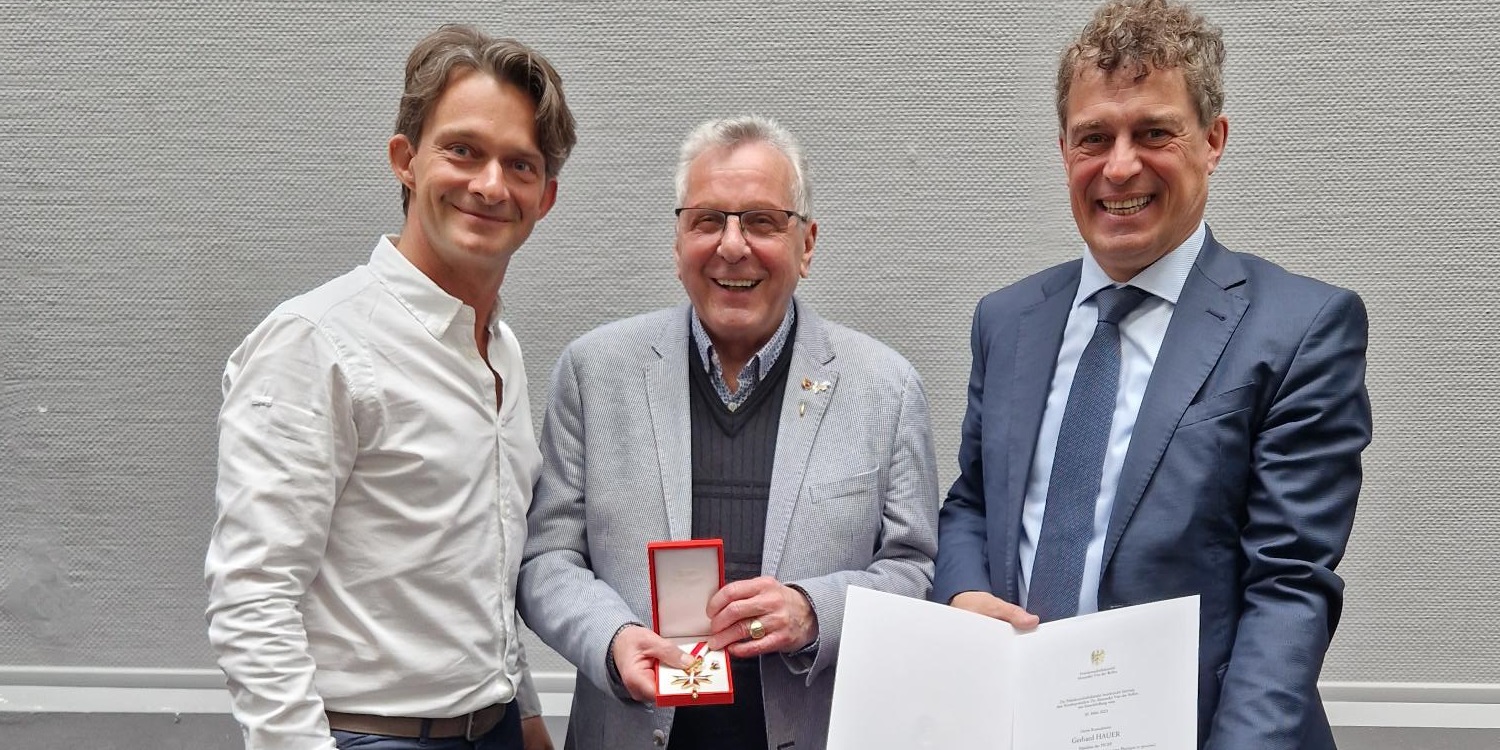In April, the FICEP General Assembly took place in Paris. After the planned departure of long-term president Gerhard Hauer, the sports umbrella organization is realigning itself with a change in the statutes, an expansion of the objectives and a trio with Austrian, French and German participation.
For Gerhard Hauer, the presidency of the Christian sports umbrella organization FICEP (Federation Internationale Christian Education Physique et sportive) came to an end after twelve years due to the maximum permitted term of office. He was dismissed with the Golden Medal of Honor. “My work for FICEP was of course accompanied by ups and downs, but getting to know many new officials from many nations, the associated positive cooperation, the enthusiasm and mood of the young people remain in my unforgettable memory. A heartfelt and special thank you to everyone for this”, said Hauer in parting.
Due to a change in the statutes decided at the General Assembly of the twelve FICEP nations (Germany, France, Austria, Poland, Romania, Czech Republic, Madagascar, Cameroon, Belgium, Italy, Senegal and Congo) with 42 participants on April 15th in Paris Hauer does not get a direct successor. For the next two years, a trio of Stefani Groß (DJK), Jonathan Collomb (FSCF) and Stefan Grubhofer (SPORTUNION) will take the lead instead. In addition, Erhard Bechtold was elected as the new chairman of the pastoral committee and Claudiu Roznovszky was confirmed in office as chairman of the youth committee.
Further develop international structure
“The motivation of the Executive Committee is to further develop the international sport structure of FICEP, based on promoting exchanges and competition between athletes from all over the world, creating a spirit of camaraderie and mutual understanding through sport. I am excited to be part of the realignment of FICEP by using sport as a vehicle to bring nations together and break down cultural and political barriers. As the person responsible for financial affairs, I want to use the strengths of FICEP in cooperation with our established partners and also with new people who are willing to work with us”, says Collomb from the FSCF.
“By supplementing and renewing the statutes, we have paved the way for a successful, modern and more effective organization with expanded goals and offers for young people in Europe and the world. My goal is to make the organization better known with its important value orientation, to win new members and thus to be active in the field of sport, education and integrative power for the benefit of youth and young adults”, says Groß, who is also Vice President for the legal department at the DJK.
“It fills me with great joy to be part of FICEP and its exciting reorientation. My goal is to promote club sport on an international level and to further develop and position it in the context of movement culture. In addition, I would like to support the development of congresses and internships for young people in clubs in order to offer them valuable opportunities for personal and sporting development”, says Grubhofer, who is also Secretary General of SPORTUNION Austria.
FICEP currently comprises twelve member countries
FICEP is an international sports association that acts on the basis of the ethical values of Christianity and promotes the Christian image of man in sport and society. It was founded in 1911 and currently consists of twelve member countries and twelve associations. In the future, supporting members will also be accepted. FICEP has it’s association headquarters in Paris and an administrative office in Vienna and organizes sporting events such as the annual FICEP camp, which took place in Styria in 2022, or competitions in various disciplines in cooperation with FISEC.
The Fédération Internationale Sportive de l’Enseignement Catholique (FISEC) is an international school sports organization founded in 1948 that organizes sports games for young people from its member countries every year. The FISEC/FICEP Games in Dunkerque (France) are on the agenda this year from July 10th to 16th. There are young people from Austria, Belgium, Brazil, Chile, the Czech Republic, France, Germany, Hungary, India, Ireland, Italy, Malta, the Netherlands, Portugal, Romania and Spain.

